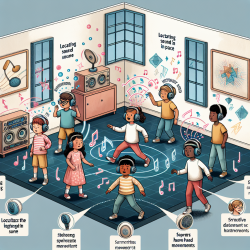Introduction
Adolescence is a critical developmental stage, one that becomes even more complex in the context of displacement and crisis. The research article "Young lives disrupted: gender and well-being among adolescent Syrian refugees in Lebanon" sheds light on the challenges faced by young Syrian refugees in Lebanon. This blog post aims to translate these findings into actionable insights for practitioners working with refugee populations, particularly in educational and therapeutic settings.
Understanding the Challenges
The study highlights several key challenges faced by adolescent Syrian refugees:
- Educational Disruption: Many adolescents have lost access to formal education, which significantly impacts their future opportunities.
- Gender-Specific Risks: Girls face heightened protection risks, including child marriage and mobility restrictions.
- Social Tensions: There is a notable tension between Syrian and Lebanese adolescents, often leading to bullying and social exclusion.
- Mental Health Concerns: The psychological stress of displacement and the loss of a stable environment contribute to mental health issues among adolescents.
Actionable Insights for Practitioners
Practitioners can play a crucial role in addressing these challenges through targeted interventions:
- Promote Educational Access: Collaborate with local schools and NGOs to create inclusive educational programs that cater to the needs of refugee adolescents. Focus on reducing barriers such as cost and curriculum differences.
- Enhance Gender Sensitivity: Develop programs that address gender-specific risks and promote gender equality. Educate families about the importance of girls' education and the risks associated with early marriage.
- Foster Social Integration: Implement community-building activities that encourage positive interactions between Syrian and Lebanese adolescents. This can reduce tensions and foster mutual respect.
- Support Mental Health: Establish safe spaces and mental health support services that are accessible to adolescents. Encourage open discussions about mental health and provide resources for coping strategies.
Encouraging Further Research
While the study provides valuable insights, there is a need for further research to explore long-term solutions and evaluate the effectiveness of interventions. Practitioners are encouraged to engage in research initiatives that focus on:
- Longitudinal studies to track the impact of educational and social interventions over time.
- Comparative studies to understand the differences in experiences between refugee and host community adolescents.
- Evaluations of mental health programs to identify best practices and areas for improvement.
Conclusion
By understanding the unique challenges faced by adolescent Syrian refugees and implementing data-driven interventions, practitioners can create meaningful change. It is crucial to continue exploring innovative solutions and fostering environments where all adolescents can thrive.
To read the original research paper, please follow this link: Young lives disrupted: gender and well-being among adolescent Syrian refugees in Lebanon.










